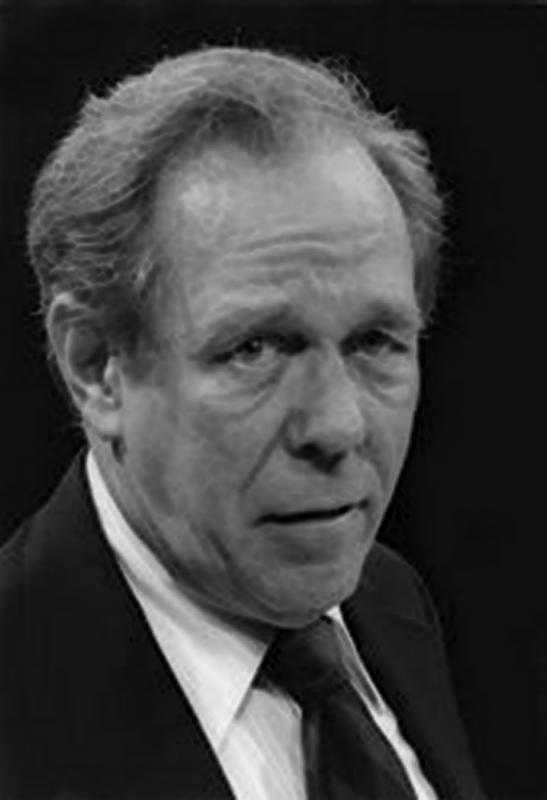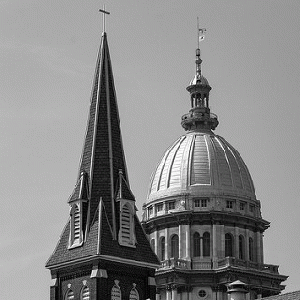MS. DAVIS AND RELIGIOUS FREEDOM
By Hal O'Leary
It is my earnest hope that the most recent attempt by Ms. Kim Davis and a religious few to establish an allegiance that supersedes the constitution which they have, as public servants, sworn to uphold, will force a final and definitive resolution of the relationship twixt church and state. Perhaps a closer look at the first amendment to the Constitution--which has been interpreted, reinterpreted and misinterpreted continuously since it was penned--will clarify some misconceptions, both by those who insist on an absolute separation of church and state and those who would subvert civil law to that of a higher authority.
It states:
Amendment I. Congress shall make no law respecting an establishment of religion, or prohibiting the free exercise thereof; or abridging the freedom of speech, or of the press; or the right of the people peaceably to assemble, and to petition the Government for a redress of grievances.
Now, it has been argued that with the clause, or prohibiting the free exercise thereof, there can be no law which would prevent Kim Davis from freely exercising her right to act on her religious conviction. But, as stated above, for her to have denied the right (a right determined by the Supreme Court) of gay couples to obtain a marriage license constitutes an imposition of her belief on the free exercise of another's belief. In her official capacity as an arm of said Government, her act becomes an attempt to bind others to compliance with her particular religious beliefs. What must be acknowledged is that in her official capacity, she is thus speaking on behalf of the Government. A refusal by the Government to call her to account would constitute a violation of the Supreme Court's decision and the Constitution itself.
The fallacious and spurious argument that this is somehow an attack on religion--or more specifically, Christianity--becomes absurd when we realize that the action of the Government in this case, rather than endangering the right of free exercise of religious belief, actually protects it. There are many theologians who have agreed with that point. If it is rights we are discussing, the gay couples have as much right to their beliefs, whatever they may be, as Kim Davis has to hers. I can't help but wonder how the religious might accept a converse decision by a gay person who might have refused a heterosexual license for any of Ms. Davis's four marriages based on his or her belief in the institution of marriage itself. Such a decision would be equally as justified as the stance taken by Ms. Davis and her supporters. Therefore, I might suggest that rather than an attack on religion by Government, we have an attack on the Government by religion.
Then again, it must be noted that should Ms. Davis insist that her action was based on a perceived sin as defined by her Bible, there is nothing I can find in her book that might definitively substantiate that claim. Even if it were, would it not be imperative that she apply that same stricture to a heterosexual couple she may have known to have committed adultery in the Puritan sense by having sex before the marriage vows, or, for that matter anyone known to have violated the Ten Commandments or one of the seven deadly sins? But, if she can choose which laws to obey, I suppose she could justifiably have her pick of sins to punish.
Should we find difficulty with the premise that a single individual can consider a personal and unique belief as his or her religion, perhaps we might turn to the world's second largest religion, Islam. Lest I be accused of using hypotheticals, let me call attention to two real and closely related incidents that should not be overlooked in this discussion of free choice and free exercise. In the Koran there are more than a hundred verses that purport to call upon the faithful to kill the unfaithful or infidels. While there is some question as to the interpretation of the word infidel, it must be admitted that even if, as we believe (as some do) that the Koran does not directly call for the killing of so-called infidels, it cannot be denied that it offers a justification for those who do. It, along with the Old Testament, must be seen as a very violent book. In our concept of separation of church and state, should our government favor one religion over the others? To say that the Government should bow only to the Christian faith in matters of authority would be a clear violation of the First Amendment.
The two incidents I refer to are the Boston Marathon bombing and the ISIS abomination in the Middle East. Of course, there are a myriad of incidents and situations I could name as analogies to the Kim Davis issue, but since these are so immediate, they may resonate more directly. In the Boston affair Dzhokhar Tsarnaev, a Kyrgyzstani-American citizen, was tried, convicted and sentenced to death for his part in the bombing. Just as we should not dispute or doubt the devoutness of Ms. Davis, the same should apply to Tsarnaev's oath of allegiance to Islam. Therefore, could he not have mounted as a defense adherence to what he believed to be a commandment of his Muslim faith? As ridiculous as it sounds, this same reasoning must even be extended to the unconscionable beheading of the victims of ISIS. Surely the defenders of Ms. Davis would not carry their argument this far.
Let me close with what I believe to be an elegant and definitive quote from one most qualified to speak on the issue. I refer, of course, to our first Catholic President, John Fitzgerald Kennedy. It is as follows:
"I believe in an America that is officially neither Catholic, Protestant nor Jewish - where no public official either requests or accepts instructions on public policy from the Pope, the National Council of Churches or any other ecclesiastical source - where no religious body seeks to impose its will directly or indirectly upon the general populace or the public acts of its officials - and where religious liberty is so indivisible that an act against one church is treated as an act against all."[Remarks to the Greater Houston Ministerial Association, September 12 1960]
.






